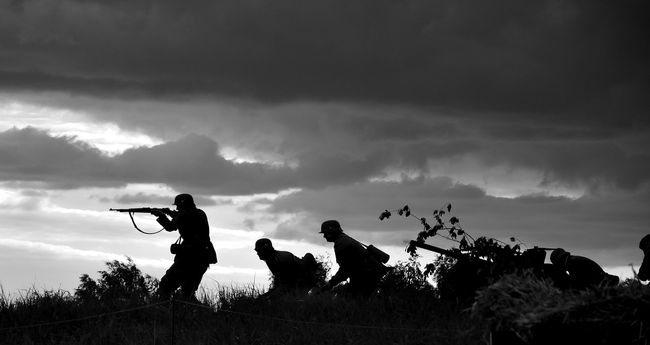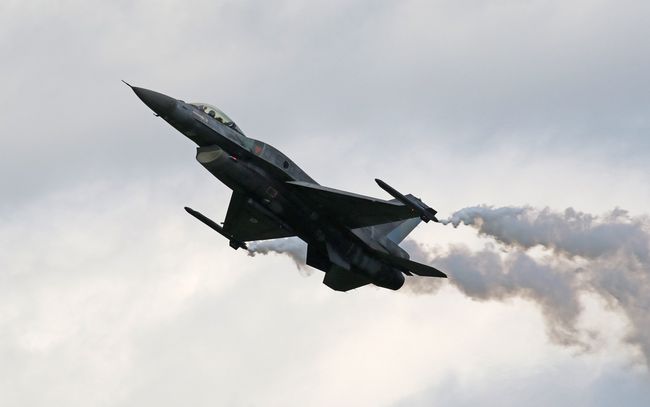
On March 6, 2025, a mishap occurred in Pocheon, Gyeonggi-do, where two KF-16 fighter jets belonging to the Republic of Korea Air Force (ROKAF) accidentally dropped a total of eight bombs. As a result, 24 civilians and 14 military personnel were injured, and 166 buildings and vehicles were also damaged. It’s one of the most significant examples of civilian damage caused by military operations in South Korea. In response, the Chief of Staff of the Air Force offered a deep apology and the governor of Gyeonggi Province tried to support affected residents through financial compensation. However, the victims continued to struggle with psychological trauma that could not be easily healed through monetary means alone.
Eight MK-82 bombs were accidentally dropped by KF-16 fighter jets from the 38th Fighter Wing.
The number of affected households reported increased from 58 to 142.
The cause was revealed as a series of pilot errors in three critical stages:
1. The day before the incident, incorrect latitude coordinates were input during the flight preparation phase.
2. On the day of the incident, a pilot didn’t realize the incorrect coordinates during the pre-flight inspection while transferring equipment to the aircraft.
3. During the actual flight, despite sensing a discrepancy between the terrain and the pre-mission simulation, the lead pilot proceeded to drop the bombs.
4. The second fighter jet, following the lead, focused only on maintaining formation and did not recognize the error in the coordinates.
5. Delayed Official Report: Although the misfire was recognized within three minutes, the official announcement was delayed by 100 minutes due to a lack of proper verification with fire and police authorities. The report was only submitted after the final confirmation of the bomb fragments.
The Wing Commander and Squadron Leader of the 38th Fighter Wing were relieved of duty.
The number of reported civilian injuries increased from 19 to 24, and property damage incidents from 142 to 166 cases.
The 38th Fighter Wing resumed flight training operations.

The accidental bombing incident in Pocheon also drew heavy criticism due to the way the situation was handled afterward. The ROKAF admitted that the overall response process was inadequate. Although the Air Force Operations Command recognized the incident as a ‘fighter jet misfire’ caused by incorrect coordinate input just three minutes after the incident occurred, they focused solely on searching for bomb fragments to confirm whether the bombs dropped were theirs. Even after the pilots had reported that the bombs had been dropped at the wrong location, the command failed to take immediate action. Cooperation with firefighting and police authorities was also minimal.
A similar case occurred abroad. On October 3, 2015, a U.S. military airstrike mistakenly targeted a Médecins Sans Frontières (Doctors Without Borders) hospital in Kunduz, Afghanistan, killing 42 people. Despite having received the coordinates of the hospital in advance, the strike still took place, sparking a major international controversy. Initially, the U.S. military denied responsibility. However, two days later, the Department of Defense launched an independent investigation. Then-President Obama issued an official apology to Médecins Sans Frontières, and a month later, disciplinary action was taken against those involved, though no formal military punishment was imposed. Both incidents caused severe civilian casualties, but the scale and context differ, one being a domestic issue and the other an international one. Nevertheless, both sparked controversy due to inadequate responses. While protecting the nation is an honorable duty, the military's handling of such incidents can erode public trust and spread anxiety among citizens.
In addition to direct damage caused by accidents, there are cases where residents suffer simply by living near military bases and facilities. On March 19th, around 1,000 residents of Pocheon held a protest in front of Pocheon City Hall condemning the recent fighter jet friendly-fire incident. They stated that "24% of Pocheon's total area has been designated as a military protection zone, where live-fire exercises are conducted daily. For 75 years, Pocheon citizens have lived under the threat of unexploded shells and the nuisance of loud noises. Even though they sacrificed solely for national security, that sacrifice has now come back to haunt them in this fighter jet bombing." They demanded compensation for damages and immediate relocation to a safer area, saying, “Our homes and lives have been completely destroyed, and the government must take immediate action.”
Similar outcries can be heard from residents in other military areas such as Cheorwon, Yeoncheon-gun, and Yangju-si. These residents live each day in anxiety, not knowing when or where the next accident might occur. They claim that the sounds of loud artillery explosions not only harm their health and property rights but also hinder their children’s right to education. Many have called for the immediate closure and relocation of these military facilities. In response, the government enacted the Military Noise Damage Compensation Act to provide financial compensation to affected residents. However, residents argue that the standards for measuring noise are based on military airfields rather than community standards, making the process unfair. The lack of clear compensation guidelines has also sparked controversy. While all of this is in the name of national defense, in modern Korean society, where the threat of war is often overlooked, these daily inconveniences have blinded civilians to those efforts and have even affected public perception of the military.

Accidents, whether internal or external, remain a critical issue for the military to address. Especially in a country like South Korea, where enlistment is mandatory, military-related incidents tend to be particularly sensitive. This raises the question: How do people perceive the military in South Korea today?
1. What do you think about the military now?
"The military is improving, but there are still problems."
Many people say, "The treatment of soldiers has improved, which is positive." However, they also say, "Accidents and incidents still happen, so safety and rules must be stronger." Moreover, “although the media contents have made people more interested in the military, real problems like unfair treatment, strict rules and outdated methods still exist.
2. Can you let your son join the military without worry?
"The military is better, but I still worry.“
The military is getting better, but many parents still feel uncertain. Conditions have been improved, and soldiers can use phones now. However, accidents and incidents still make parents nervous.
One parent said, "The treatment of soldiers is better, and bad behavior in the military is decreasing, so I feel a little better." In contrast, they also said, "The military is always dangerous, so more effort is needed to prevent accidents.“
Many parents feel more comfortable because soldiers can use phones, and the military is less secretive than before. One parent said, "Since soldiers can use phones, I feel a little safer. Also, the military hides fewer things than before."
However, some parents still worry about safety.
3. How should the military improve its system for handling incidents?
"The military needs a better way to handle problems."
Many people think the military's response system is old and slow. One person said, "The military does not respond well to incidents. It needs to change to handle problems quickly.“
Overall, people think the military must handle incidents more fairly and transparently. A better system is needed to handle problems.
Both the soldiers who dedicate their youth to defending the nation, and the citizens who endure daily anxieties are united in their focus on national security. However, it is a fact that practical compensation and concrete measures for those sacrifices are still insufficient. What is the nation truly striving to protect? The accidental bombing in Pocheon should serve as a reminder of the fundamental purpose of the military as an institution. Moreover, we hope to see the military evolve into a safer organization, one that can ease the worries of parents sending their children into service. May Korea become a global role model in how it responds to and resolves military incidents. Lastly, we extend our deepest condolences and respect to the soldiers fulfilling their duty of national defense and to their families who suffer without them.
Media Management Editor•KIM TAE WOO•jerryfighter27@gmail.com
82nd Cub Reporter• LEE JEONG MIN•agaoo1@naver.com









